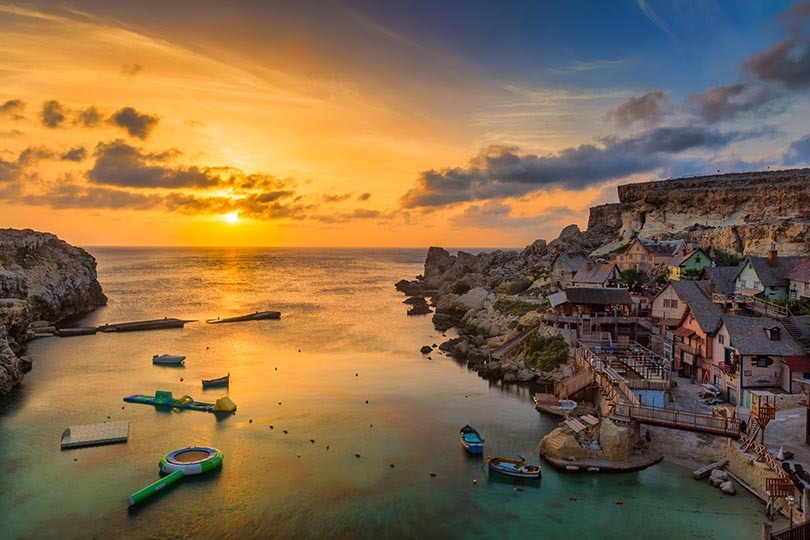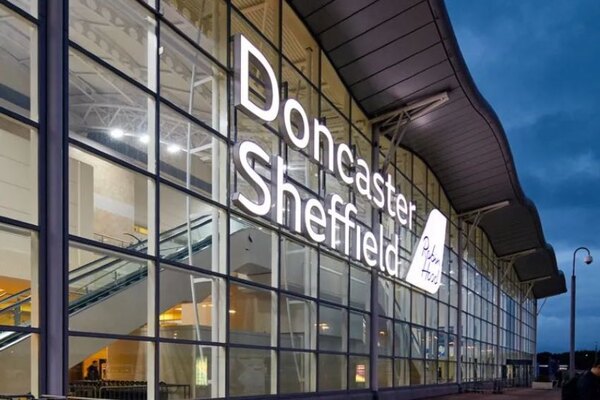'Amber: the most ambiguous and frustrating colour'
Before we get into the frustrations of amber, let’s take a moment to acknowledge that the announcement on Friday (7 May) by Grant Shapps does at least move us forward.

Following several seasons overseas for Cosmos in the late ‘90s, Mark joined charter operator Direct Holidays, subsequently part of MyT...more
While much of the discussion on the traffic light system inevitably focuses on the detail, I remind my team not to forget the bigger picture. By my estimation, when we reach 17 May, 133 days will have passed since it was last legal to travel abroad without a reasonable excuse. Longer even than the first lockdown.
That will soon be over. While the pace may seem achingly slow, the government has, I have to admit, stuck to the roadmap announced on 22 February without having to fall back on the “no earlier than” caveat deliberately attached to each step.
Sure, it would have been nice for the 17 May date to have been earlier. Sure, it would have been nice to get more notice of the traffic light lists. Sure, it would be nice if testing wasn’t so onerous for green destinations. And sure, it would certainly be nice if more destinations were green (and actually open to UK residents) right now.
But the framework shows a genuine intention to restart international travel, it has progressed on track, and nobody can really blame the government for moving forward with caution.
To be honest, I (grudgingly) welcome that caution. In my view, it’s critical we build slowly and sustainably, allowing consumer confidence to grow in tandem. We all remember the shambles of last year’s air corridors, so it is better to have a short first green list we can be confident remains stable. Similarly, with such legitimate concern around variants, I’d much rather the restrictions on testing are dismantled over time than be added reactively following a new scare.
However, setting my wavering patience aside, I still see flaws in this new scheme. I suspect most will resolve themselves in the coming weeks and months, such as the potential for Foreign Office advice to contradict the traffic light status; whether the four home nations will work together; and the stuttering start we are sure to have as mismatched supply and demand struggle to align at relatively short notice.
My major concern, though, now centres on the amber list.
I don’t suppose I’d ever thought about it before, but amber is surely the most pointless colour in a traffic light. Missing the clarity of green or red, its purpose seems to be to build anticipation for something to come. And in truth, don’t we tend to just ignore it?
But unlike the traffic lights on our old commutes, these ones don’t change quickly. Clients will be in a prolonged state of anticipation for a potential switch to green (or red) at some unspecified point in the future.
In theory, it seems straight forward enough: amber means 10 days self-isolation, or five days with "test to release". Sure, some people may decide to travel under these conditions, viewing five days at home as a small price to pay to get the trip they want.
However, the story I’m hearing from agents is one of a continued reluctance to self-isolate by their clients, for very valid reasons like school and work commitments. Do clients continue to wait in the hope their desired destination turns green before the planned departure date? Conversely, do they wait until it turns red before giving up on the trip altogether? With self-isolation at home falling outside the holiday contract and therefore no automatic right to a refund, will the unprecedented flexibility from suppliers currently in the marketplace be sufficient to keep clients happy as plans change?
Guidance or law?
To top it all off, at time of writing following the Friday announcement, the gov.uk website states “you should not travel to amber list countries or territories for leisure purposes”, a sneaky addition that wasn’t covered in the Global Travel Taskforce report, nor did it seem to even warrant a mention during Grant Shapps’ speech.
Is this guidance or law? Is it fixed until the next traffic light status review in three weeks or the scheme review date on 28 June? Will airlines now delay their planned restarts to these destinations? Why is business travel a legitimate reason and leisure travel not? Is it actually enforceable?
I think it’s safe to say that the announcement won’t lead to phones ringing off the hook in the coming days.
Interest in Portugal is sure to rise, but with no official confirmation just yet from the Portuguese authorities when exactly they will reopen to leisure travel for Brits, there’s not a huge amount we can do for now.
The green list is so small, it has been the tiniest step forward. And with most of the world now allocated as amber, the calls we can expect are from clients already booked to those destinations. They’re sitting at the traffic lights poised for the next move and, unfortunately for us agents and operators, we’re unable to offer them any clear advice right now.
Just like the traffic lights out on the street, amber is proving to be the most ambiguous and frustrating colour.














